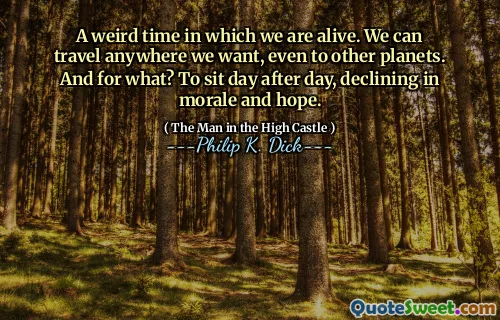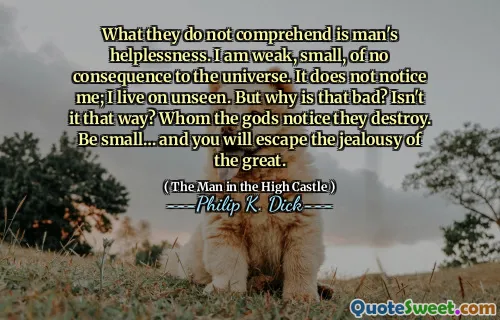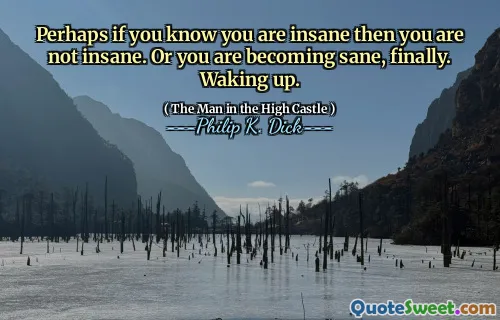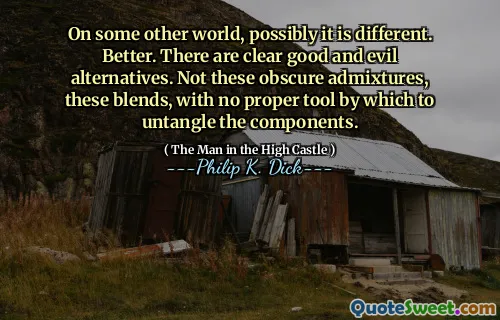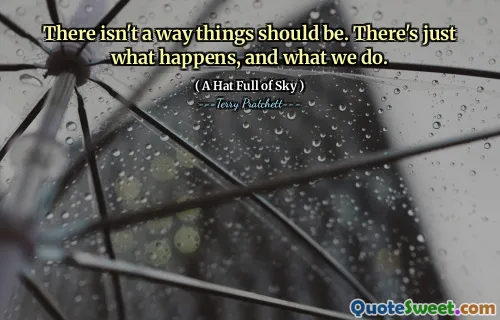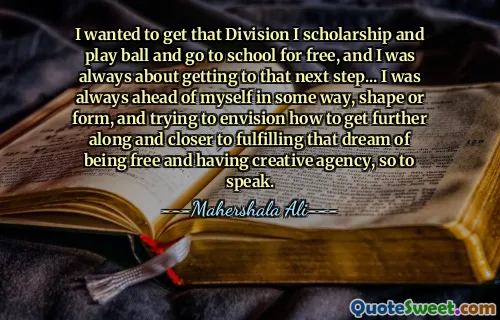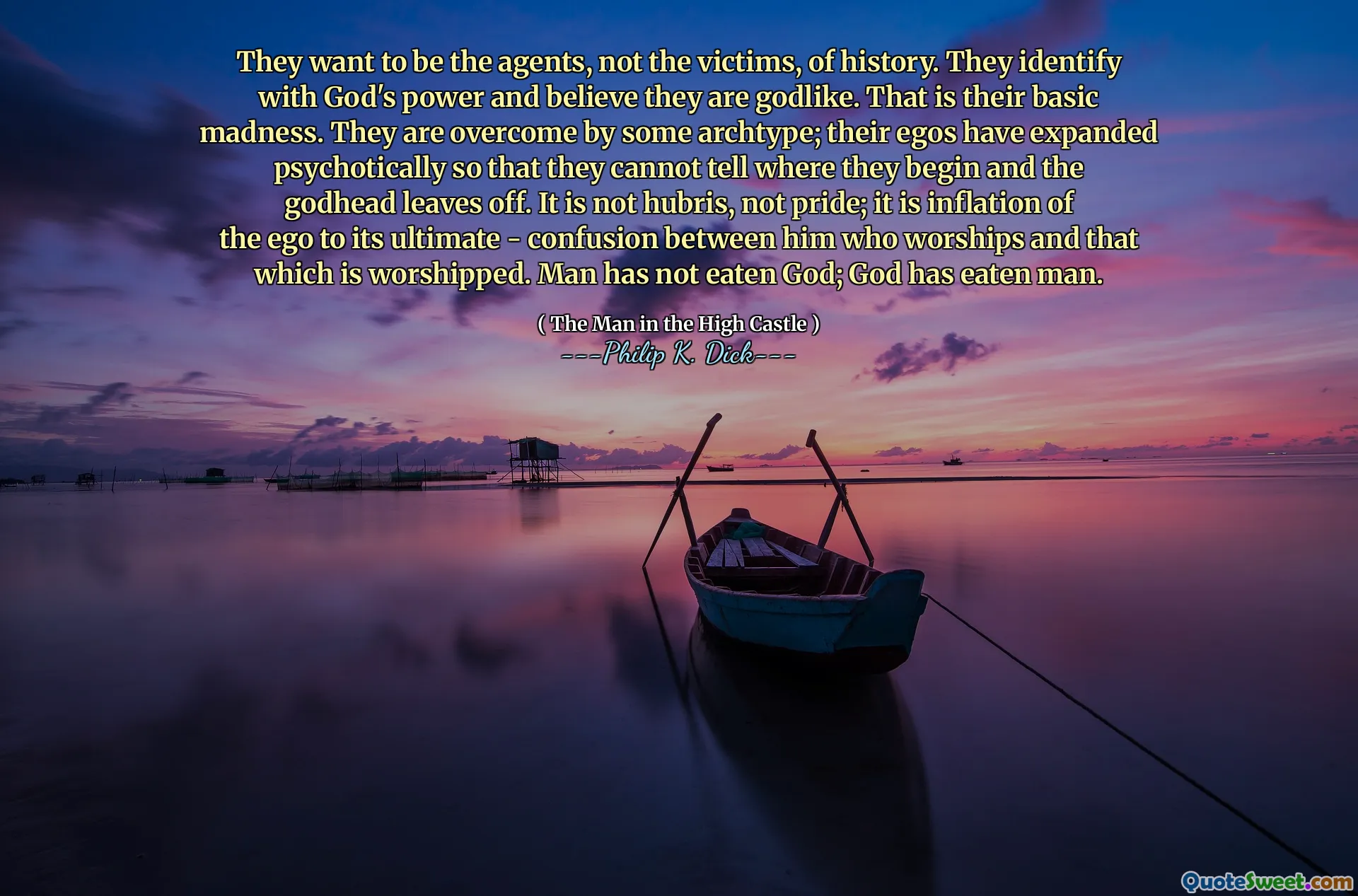
They want to be the agents, not the victims, of history. They identify with God's power and believe they are godlike. That is their basic madness. They are overcome by some archtype; their egos have expanded psychotically so that they cannot tell where they begin and the godhead leaves off. It is not hubris, not pride; it is inflation of the ego to its ultimate - confusion between him who worships and that which is worshipped. Man has not eaten God; God has eaten man.
In this passage from Philip K. Dick's "The Man in the High Castle," the characters express a desire to control their fate rather than be passive victims of historical events. They aspire to embody divine qualities, which suggests a profound psychological distortion. This overwhelming sense of power leads to a merging of identities, where individuals struggle to distinguish themselves from the divine. This turmoil reflects a broader theme of the dangers of excessive ego inflation and the consequences of losing one's sense of self.
This notion is rooted in a deeper madness, where the aspiration to be godlike distorts reality. The characters' inflated egos contribute to a fundamental confusion about the nature of divinity and humanity, blurring the lines between worshipper and the object of worship. The metaphor of "God has eaten man" illustrates the destructive path of this obsession with power, highlighting a troubling inversion where the quest for agency leads to loss of self. It speaks to the existential consequences of such a disconnection from reality.
